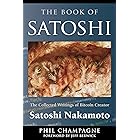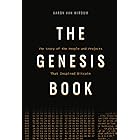| Print List Price: | $13.50 |
| Kindle Price: | $2.99 Save $10.51 (78%) |
| Sold by: | Amazon.com Services LLC |
Your Memberships & Subscriptions

Download the free Kindle app and start reading Kindle books instantly on your smartphone, tablet, or computer - no Kindle device required.
Read instantly on your browser with Kindle for Web.
Using your mobile phone camera - scan the code below and download the Kindle app.

OK
The Ethics of Money Production (LvMI) Kindle Edition
He is speaking not in the colloquial sense of the phrase "making money," but rather the actual production of money as a commodity in the whole economic life.
The choice of the money we use in exchange is not something that needs to be established and fixed by government. In fact, his thesis is that a government monopoly on money production and management has no ethical or economic grounding at all. Legal tender laws, bailout guarantees, tax-backed deposit insurance, and the entire apparatus that sustains national monetary systems, has been wholly unjustified. Money, he argues, should be a privately produced good like any other, such as clothing or food.
In arguing this way, he is disputing centuries of assumptions about money for which an argument is rarely offered. People just assume that governments or central banks operating under government control should manage money. Hulsmann explores monetary thought from the ancient world through the Middle Ages to modern times to show that the monopolists are wrong. There is a strong case in both economic and ethical terms for the idea that money production should be wholly private.
He takes on the "stabilization" advocates to show that government management doesn't lead to stability but to inflation and instability. He goes further to argue against even the theoretical case for stabilization, to say that money's value should be governed by the market, and that the costs associated with private production are actually an advantage. He chronicles the decline of money once nationalized, from legally sanctioned counterfeiting to the creation of paper money all the way to hyperinflation.
In his normative analysis, the author depends heavily on the monetary writings of 14th-century Bishop Nicole Oresme, whose monetary writings have been overlooked even by historians of economic thought. He makes a strong case that "paper money has never been introduced through voluntary cooperation. In all known cases it has been introduced through coercion and compulsion, sometimes with the threat of the death penalty.... Paper money by its very nature involves the violation of property rights through monopoly and legal-tender privileges."
The book is also eerily prophetic of our times:
"Consider the current U.S. real-estate boom. Many Americans are utterly convinced that American real estate is the one sure bet in economic life. No matter what happens on the stock market or in other strata of the economy, real estate will rise. They believe themselves to have found a bonanza, and the historical figures confirm this. Of course this belief is an illusion, but the characteristic feature of a boom is precisely that people throw any critical considerations overboard. They do not realize that their money producer—the Fed—has possibly already entered the early stages of hyperinflation, and that the only reason why this has been largely invisible was that most of the new money has been exported outside of the U.S.... Because a paper-money producer can bail out virtually anybody, the citizens become reckless in their speculations; they count on him to bail them out, especially when many other people do the same thing. To fight such behavior effectively, one must abolish paper money. Regulations merely drive the reckless behavior into new channels."
Hulsmann has provided not only a primer in understanding our times, but a dramatic extension of the work of Menger, Mises, Hayek, Rothbard, and others to map out an economically radical and ethically challenging case for the complete separation of money and state, and a case for the privatization of money production. It is a sweeping and learned treatise that is rigorous, scholarly, and radical.
- LanguageEnglish
- Publication dateMay 24, 2010
- File size973 KB
Customers who bought this item also bought
Editorial Reviews
About the Author
Product details
- ASIN : B003NX6Z3W
- Publisher : Ludwig von Mises Institue (May 24, 2010)
- Publication date : May 24, 2010
- Language : English
- File size : 973 KB
- Simultaneous device usage : Unlimited
- Text-to-Speech : Enabled
- Screen Reader : Supported
- Enhanced typesetting : Enabled
- X-Ray : Not Enabled
- Word Wise : Enabled
- Sticky notes : On Kindle Scribe
- Print length : 292 pages
- Best Sellers Rank: #753,947 in Kindle Store (See Top 100 in Kindle Store)
- #346 in Economic Theory (Kindle Store)
- #459 in Macroeconomics (Books)
- #566 in Economic History (Kindle Store)
- Customer Reviews:
About the author

Discover more of the author’s books, see similar authors, read author blogs and more
Customer reviews
Customer Reviews, including Product Star Ratings help customers to learn more about the product and decide whether it is the right product for them.
To calculate the overall star rating and percentage breakdown by star, we don’t use a simple average. Instead, our system considers things like how recent a review is and if the reviewer bought the item on Amazon. It also analyzed reviews to verify trustworthiness.
Learn more how customers reviews work on Amazon-
Top reviews
Top reviews from the United States
There was a problem filtering reviews right now. Please try again later.
I can personally attest that this book has been of enormous benefit to many people without any formal background in economics. Hulsmann's intellectual ambition is admirable (he even ticks off where appropriate Murray Rothbard and Ludwig von Mises, two giants of "Austrian" monetary theory), but there is nothing in the book that an educated and intelligent layman, so to speak, can't understand. Indeed, once you read this book you will be much closer to being able to withstand the barrage of (essentially meaningless) statistics and deliberately obfuscatory terms Keynesians and Monetarists adduce in favour of our barmy and profoundly anti-capitalist monetary system, using the old fashioned weapons of closely reasoned, logical argument.
The only quibble I have with this book are Hulsmann's sometimes rather strained attempts to demonstrate that his analysis is in accordance with authorised Roman Cathoic social teaching. He makes cogent points even here, demonstrating that many papal Bulls that appear anti-capitalist apply more to a system of government-sponsored pseudo capitalism than the real thing, but he fails to adequately disguise the extent to which they positively endorsed even worse statist and corporatist forms of economic organisation. Since I'm not a Roman Catholic, or any type of Christian, and am perfectly comfortable with saying that some of what the RC church teaches about economics is simply wrong, I'd prefer the book to leave out these bits and make a more general moral and (where applicable) Christian case for a free market in money.
However, most current economists as well as all governments and central bankers are Keynesians today. Theefore hoping to see Austrian economics put in practice any time soon is, honestly speaking, pie-in-the-sky. One exception may be Mrs. Merkel and the Bundesbank portion of the ECB but it is hard to imagine how they could buck the rest of the global establishment. I am not too clear about the thinking in China where surprisingly lively debates are taking place on all kinds of economic and monetary subjects. But I never heard of Mr. Hu espousing Austrian concepts... Well, stranger things have happened.
Despite benign and sometimes vicious neglect (see Paul Krugman), Austrian principles exist and, at least as far as I can see, they do impact significantly the development of what happens in the world, whether anybody is aware of them or not; sort of like the laws of physics, much as I hate to apply physical phenomena parallels to human action.
Therefore, as a practitian in finance, what I missed in this book is a chapter evaluating what will, or at least is likely to really happen in the economy (and in the markets if that's not too much to ask), when Keynesianism is employed in an environment where Austrian rules apply.
Did Mr. Hulsmann address this question in some other publication? Is it impossible to divine any reasonable answer since the human psyche can go in any and all directions in a random manner? Are we heading for some large catastrophic event, just as WW II followed a similar situation after the Big Depression? Something else, similar or comparable to a war may be?
I have been thinking for a while of an impending complete paradigm change, but will develop that idea only if anyone expressed any interest in reading about it.
Many thanks for a wonderfully written book.
Top reviews from other countries
I'd be very happy to read a contrary view.










